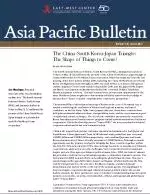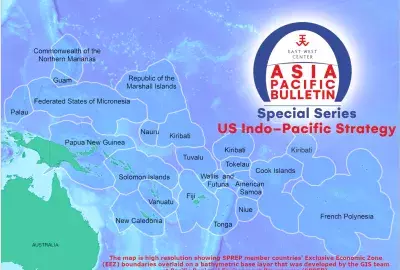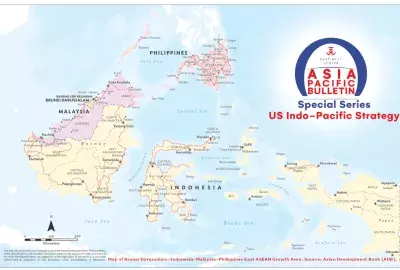Error message

The fourth summit between Chinese, South Korean (ROK), and Japanese leaders in Tokyo on May 21-22 reaffirmed the promise of the China-South Korea-Japan triangle as a sustainable model for Northeast Asian cooperation. Much has happened since the last meeting of the three leaders in May 2010, including the China-ROK fallout over North Korea's belligerent actions throughout 2010, the clash between a Chinese fishing boat and two Japanese Coast Guard vessels in September 2010, and the Japan-ROK dispute last March over Japanese textbooks that claimed the contested Dokdo/Takeshima Islands as Japanese territory. See-Won Byun, Research Associate at the Asia Foundation, discusses why this year's summit was an important opportunity for the three Northeast Asian neighbors to demonstrate solidarity and renew their pledge to advance their "future-oriented comprehensive cooperative partnership."
|
The fourth summit between Chinese, South Korean (ROK), and Japanese leaders in Tokyo on May 21-22 reaffirmed the promise of the China-South Korea-Japan triangle as a sustainable model for Northeast Asian cooperation. Much has happened since the last meeting of the three leaders in May 2010, including the China-ROK fallout over North Korea's belligerent actions throughout 2010, the clash between a Chinese fishing boat and two Japanese Coast Guard vessels in September 2010, and the Japan-ROK dispute last March over Japanese textbooks that claimed the contested Dokdo/Takeshima Islands as Japanese territory. See-Won Byun, Research Associate at the Asia Foundation, discusses why this year's summit was an important opportunity for the three Northeast Asian neighbors to demonstrate solidarity and renew their pledge to advance their "future-oriented comprehensive cooperative partnership."
|







